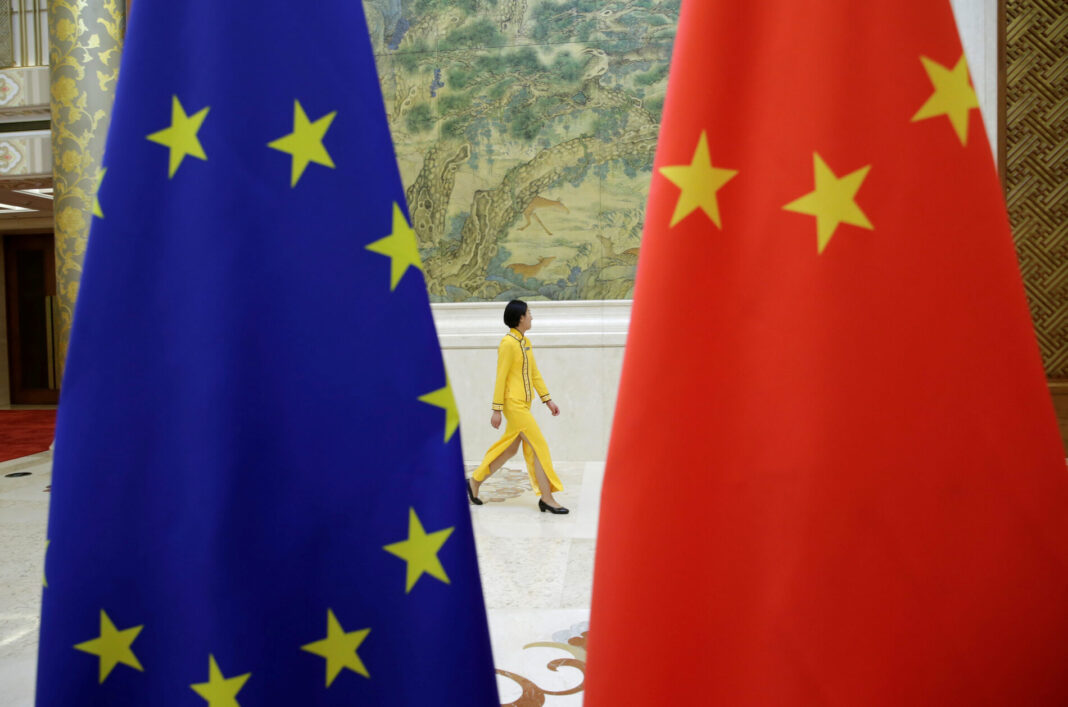The EU-China relationship is complex. Differences and common interests make them partners but even rivals and competitors
China and the European Union’s economy are deeply interconnected: while the former is the EU’s second biggest trading partner, the latter is China’s biggest one. Over the last 20 years, the foreign direct investment (FDI) flow from the EU to China touched €140 billion, while for China it was about €120. For these reasons, the Comprehensive Agreement on Investment is strongly relevant for the public debate even today, and while it is mainly focused on its ratification and the advantages or disadvantages for EU investors, it is also worth asking how the Chinese Public frames it.
Although CAI has been accepted with much rejoicing by Chinese media and publicly appealed as “EU-China Investment Agreement”, it has not yet received a concrete publication of its detailed design and broader information about its own stipulation either. Similarly, since the start of the negotiations in 2013, no more than 100 academic publications were released concerning the topics, many of them alongside the much more famous China’s Infrastructure Project (BRI). Nowadays, no daily newspaper such as People’s Daily or business magazine just as Caixin, has reported actual information provided regarding the complex details of the agreements, that from an external point of view seems to be no more than a celebratory example of great “success of multilateralism” for the CCP leadership.
CAI: not only money but also democracy and human rights
However, the story of CAI is not just about money but intersects with the role played by EU fundamental principles in the Union’s actions towards third countries, such as democracy and human rights. A role that seems to have stalled the negotiations. Indeed, after the exchange of sanctions and counter-sanctions between Chinese and EU authorities because of reported human rights abuses in Xinjiang, the EU Parliament stated in its resolution of 20 May 2021 that until China does not lift theirs, it will not deal with the CAI. Abuses that are still refused by the Chinese government.
The fact that the Chinese government did not appreciate the European approach was veiled in the Russia-China Joint Statement on International Relations Entering a New Era in February. In this document, Beijing complained about “certain States’ attempts to impose their own ‘democratic standards’ on other countries” and stated that “human rights must not be used to put pressure to other countries”, but “should be seen through the prism of the real situation in every particular country” and according to its own history, culture and social and economic development. The same idea is also echoed in the press: the prevailing opinion in the Chinese narrative on the agreement is that the EU would only instrumentalize workers’ rights as a negotiating lever. According to what the columnist Tao Duanfang has written for Caixin, some European companies hope to weaken the competitiveness of their Chinese competitors by raising their costs.
From this, it is clear that China is not inclined to negotiate its own values and perceives any attempt in this direction as a violation of mutual non-interference in internal affairs. Nevertheless, the basis of the modern idea of Chinese democracy, as well as human rights, can be found in the Confucian concept of good government theorised in Sun-Yat Sen’s “three principles of people” and the following “people’s democratic dictatorship” by Mao Zedong, included in the Chinese Constitution’s preamble. The relation between the government and the people under the so-called “socialism with Chinese characteristics” has been described by the current leader Xi Jinping with the term “whole-process people’s democracy”. This concept implies the guiding role of the Party as the representatives of all the social classes: the efficacy of the democracy can only be measured in terms of “development” and its aim is indeed the long-term welfare of all the Chinese people.
Of course, the EU-China relationship is complex. Differences and common interests make it multi-faced, as the Commission recognizes the two countries are partners but even rivals and competitors. In such a case, mutual comprehension is necessary, if not from the point of view of the friendship among nations, at least in virtue of accomplishing strategic benefits for both parties. Recalling what Sun-Tzu has stated, “if you know yourself but not the enemy, for every victory gained you will also suffer a defeat”.
Discover all the Eastwest European Institute’s course.
Although CAI has been accepted with much rejoicing by Chinese media and publicly appealed as “EU-China Investment Agreement”, it has not yet received a concrete publication of its detailed design and broader information about its own stipulation either. Similarly, since the start of the negotiations in 2013, no more than 100 academic publications were released concerning the topics, many of them alongside the much more famous China’s Infrastructure Project (BRI). Nowadays, no daily newspaper such as People’s Daily or business magazine just as Caixin, has reported actual information provided regarding the complex details of the agreements, that from an external point of view seems to be no more than a celebratory example of great “success of multilateralism” for the CCP leadership.




